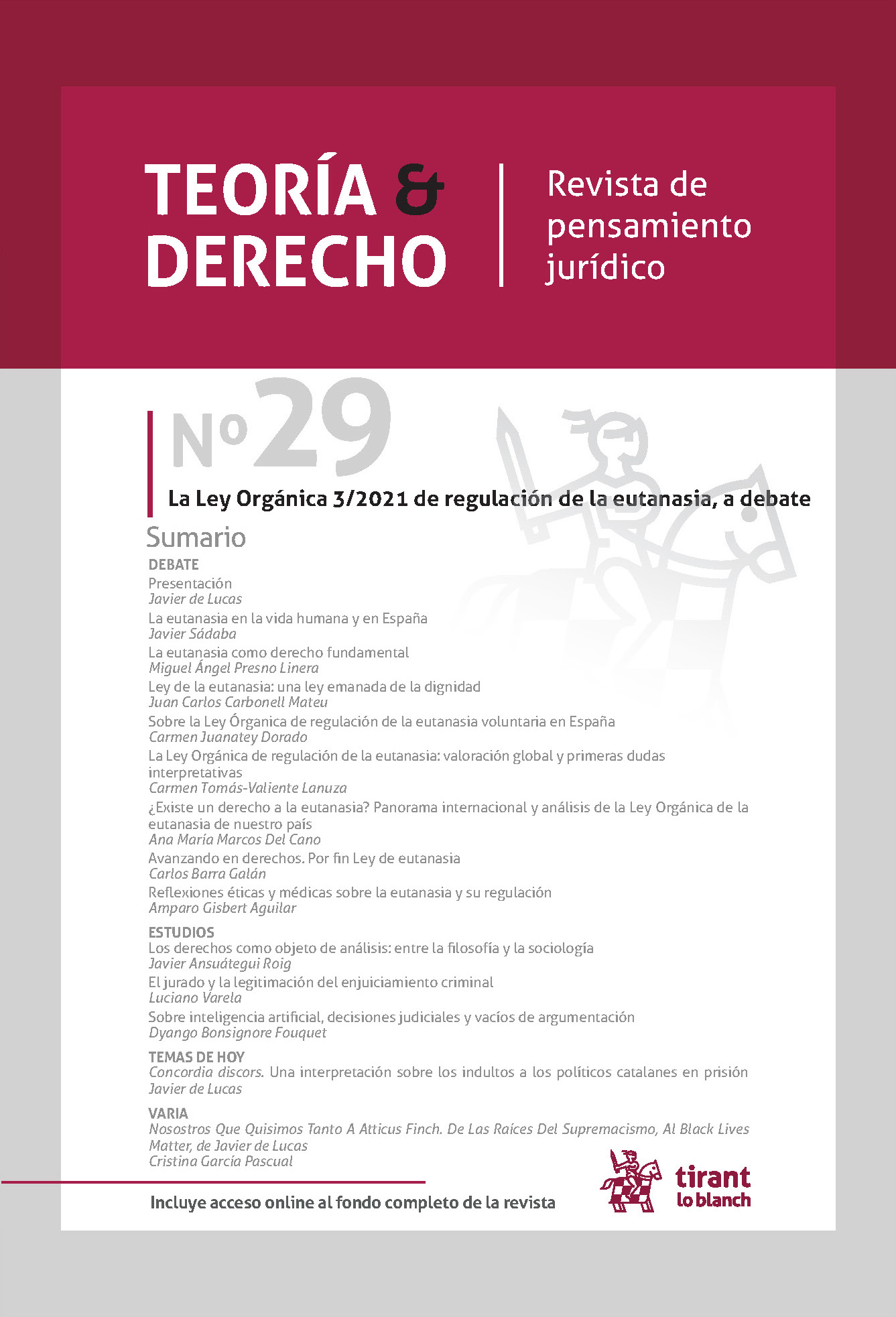Sobre Inteligencia Artificial, decisiones judiciales y vacíos de argumentación
DOI:
https://doi.org/10.36151/td.2021.011Palabras clave:
inteligencia artificial, algoritmos, «machine learning», opacidad decisión judicial, argumentación jurídicaResumen
En las últimas décadas, hemos asistido a una auténtica explosión del campo de la inteligencia artificial (IA), cuya popularización se ha hecho especialmente visible en tiempos recientes. Una de las aplicaciones de esta tecnología que más interés viene suscitando es su empleo en el ámbito jurídico. Este artículo pretende reflexionar sobre una parte reducida de la conexión Derecho-IA, a saber, aquella que concierne a la toma de decisiones judiciales. Se examinan, para ello, dos hipótesis: la que concibe la sustitución del juzgador humano por una inteligencia artificial, y la que entiende el uso de esta última como complemento o apoyo al juzgador a lo largo del proceso decisorio. En relación con la primera, se reflexiona sobre las dificultades que entraña el concepto de «razón» cuando se aplica al decisor humano y al artificial, y en qué modo esto repercute en la función jurisdiccional como actividad inter pares. En relación con la segunda cuestión, se destaca el potencial que el uso de la IA como apoyo puede venir acompañada de sus propias dificultades. Reflexionando a través del ejemplo de la justicia penal y los pronósticos de reincidencia, se destaca que el uso de este tipo de instrumentos puede producir «vacíos de argumentación», a saber, puntos ciegos en el proceso de justificación de la decisión judicial.
Descargas




















